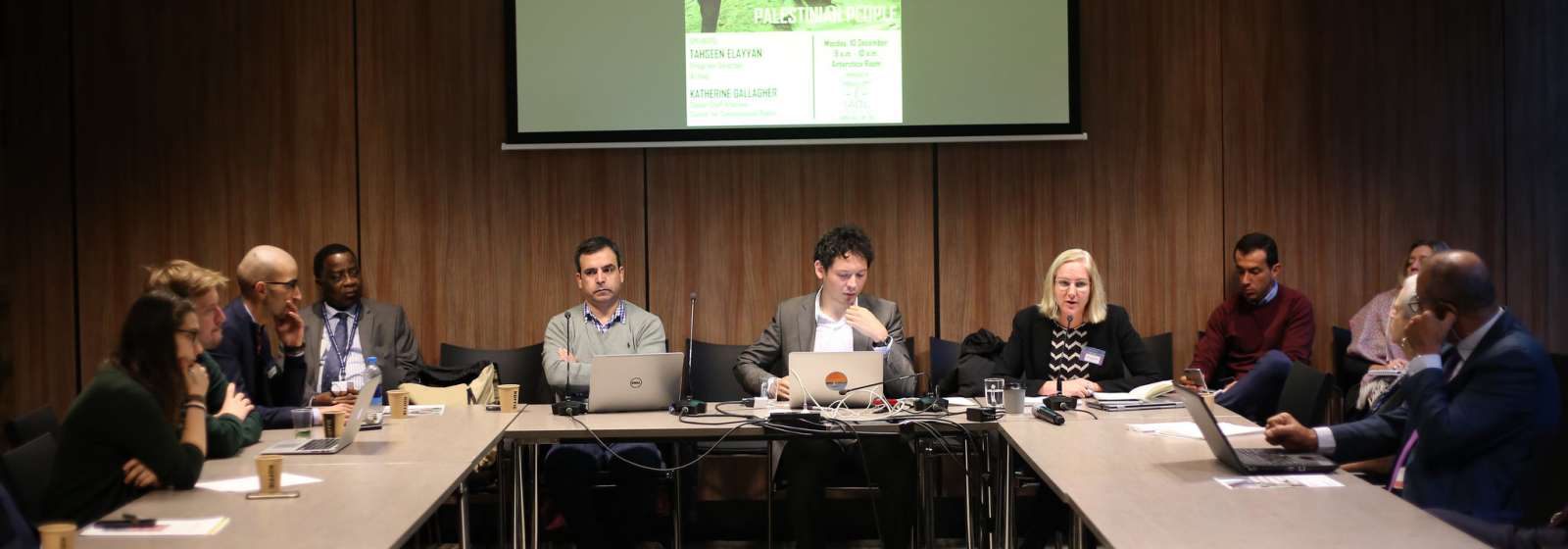
Summary Day Five
Assembly of States Parties 2018
On 70th anniversary of the Universal Declaration on Human Rights, focus should be on ensuring the right to redress for all victims of international crimes
10 December 2018
“Human rights are universal and eternal….They are also indivisible.” – António Guterres, UN Secretary-General, Message for Human Rights Day, 2018
Day Five Plenaries
10 December 2018 marks the 70th anniversary of the Universal Declaration on Human Rights – a milestone document in the history of human rights. Proclaimed by the United Nations General Assembly on 10 December 1948, the Declaration was “drafted by representatives with different legal and cultural backgrounds from all regions of the world as a common standard of achievements for all peoples and all nations.”
The Declaration recognizes that “the inherent dignity and of the equal and inalienable rights of all members of the human family is the foundation of freedom, justice and peace in the world,” – a notion with profound resonance for many participants at the 17th session of the ASP.
On this auspicious day, the 17th session of the ASP resumed with discussions on the budget of the Court – with presentations by the ICC Registrar, Peter Lewis, and the Chair of the Committee on Budget and Finance (CBF), Mr. Hitoshi Kozaki (Japan), followed by consideration of the audit reports.
States considered the Court’s proposed budget request for 2019 (€151.134 million) and the recommendation of the CBF to approve a budget of €144.87 million.
While the Coalition does not take a position on the specific amount of resources to allocate to the ICC in any given year, it has urged states to treat the CBF review and recommendations as the bare minimum approach in their 2019 budget discussions during ASP17.
States also resumed their informal consultations on the omnibus resolution, “Strengthening the International Criminal Court and the Assembly of States Parties.”
Side Events from Day Five
The Coalition for the International Criminal Court (CICC) and Austria (also in its role holding the Presidency of the Council of the European Union) convened a side event entitled, “Global Civil Society and European States: Advancing International Justice in the 20 years to come.”
Another side event saw the launch of the “Call it what it is” Campaign to define sexual violence with a panel discussion on “What makes violence ‘sexual’?” Co-hosted by Argentina, Australia, Canada, Costa Rica, New Zealand, Republic of Korea, Sweden, Switzerland, United Kingdom, and Women’s Initiatives for Gender Justice (WIGJ), the event also saw the launch of the WIGJ’s “Gender Report Card on the ICC 2018.”
The ICC Office of the Prosecutor launched its “2018 Report on Preliminary Examination Activities” in an event co-hosted by Bulgaria, Niger, Norway, Senegal, Slovenia, Tunisia, and, Uruguay.
The International Association of Democratic Lawyers organized a side event on “Prosecuting International Crimes Committed Against the Palestinian People.”
Switzerland and the Oxford Institute for Ethics, Law and Armed Conflict organized a side event to discuss a proposed amendment to the Rome Statute that would progress “Towards accountability for the war crime of starvation in internal armed conflict,” while Germany and the International Nuremberg Principles Academy explored the topic of “Islam and International Criminal law and Justice.”
The Africa Network for International Criminal Justice convened an evening side event on “Justice, peace and security in Africa: deepening the role of the ICC,” while the International Renaissance Foundation organized a discussion on “Ratification of the Rome Statute as an important step to combating impunity for grave crimes in Ukraine.”
Meanwhile, Finland, Germany, Switzerland, the Netherlands, Nigeria and the Wayamo Foundation/Africa Group for Justice and Accountability (AGJA) organized a side event to consider, “Creative responses for International Criminal Justice in Africa.”
Transitional Justice Coordination Group-Afghanistan hosted a reception connected to an exhibition, “Memory boxes exhibition: Making Afghan victims’ memories and stories matter,” and the International Nuremberg Principles Academy closed the day by screening a documentary, “Peace Through Justice – The Legacy of Thomas Buergenthal” at the Omniversum theater in The Hague.
Missed something? Catch up on the action with all of our ASP17 Daily Summaries.
